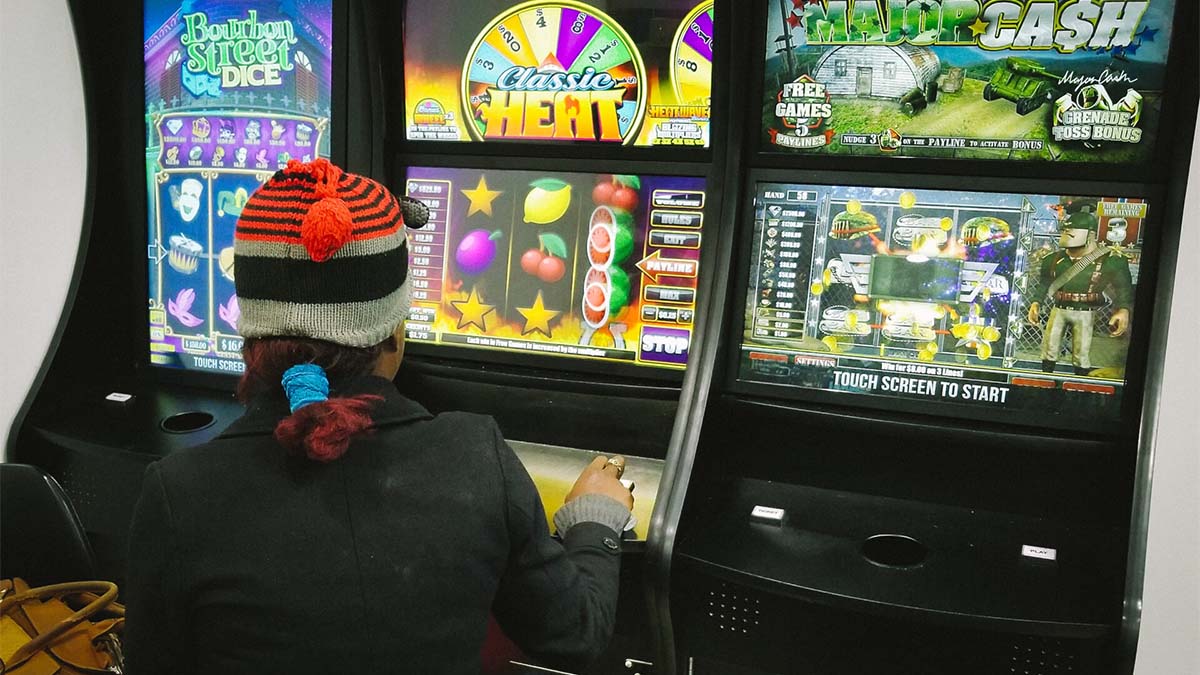
Games that allow people to bet money and win cash have popped up around the state, including in this Richmond corner store. Manufacturers say they’re games of skill, not chance. (Ned Oliver/Virginia Mercury)
In a surprise order Friday, the Supreme Court of Virginia overruled a lower court and reinstated the state’s ban on slots-like skill machines, saying a lawsuit challenging the ban on free speech grounds is unlikely to succeed.
The high court was reviewing the propriety of a lower court’s longstanding injunction that has been preventing the state from enforcing a ban on the machines that took effect in the summer of 2021. Because the General Assembly has repeatedly taken action to modify the specifics of that ban, the Supreme Court ruled it had jurisdiction to review the matter even though the lawsuit still hasn’t gone to trial yet in Greensville Circuit Court.
This story was reported and written by The Virginia Mercury
Looking at the merits of the case, the Supreme Court ruled the lower court “abused its discretion” by ruling that the skill-game industry is likely to succeed in its claims that its games are a protected form of free speech.
“Although at times it is difficult to determine where a particular activity falls on the speech/conduct continuum, no such difficulty is present when the activity being regulated is gambling. We long have viewed gambling as conduct that may be heavily regulated and even banned by the Commonwealth as an exercise of its police powers,” the Supreme Court said in an order from Justices Stephen R. McCullough, Teresa M. Chafin and Wesley G. Russell Jr.
The lawsuit against the ban, brought by Southside Virginia truck stop owner Hermie Sadler in conjunction with major skill-game company Pace-O-Matic, is set to go to trial this December in Greensville. As the litigation has played out, state and local officials have been frustrated by their inability to tax and regulate games that resemble slots but involve a small element of skill that has made them difficult to classify under the state’s gambling rules.
Since the lower court issued an injunction in late 2021, the machines, a common sight in convenience stores and sports bars, have been operating with no regulatory oversight.
By lifting the injunction, the Supreme Court’s ruling puts the state ban back in effect, but it’s unclear whether it will be immediately enforced given the pending status of the lawsuit.
“Our attorneys are currently reviewing the opinion and assessing next steps,” said Christina Freundlich, a spokesperson for Pace-O-Matic, which operates the prominent Queen of Virginia skill game franchise.
The office of Attorney General Jason Miyares, which had asked the Supreme Court for the review, did not immediately respond to a request for comment Friday morning.
In its order, the Supreme Court justices said the state is not seeking to restrict the visuals or messages of the games, but the “promise (and the ultimate execution) of a payout if the game ends in a particular fashion.”
“If criminalizing promises of monetary winnings as determined by the outcome of a game violated free speech rights, the Commonwealth would be unable to prohibit unregulated bookmakers from taking bets on sporting events or citizens from running private ‘numbers’ games because such activities involve the same basic promise,” a footnote in the court’s order said.




